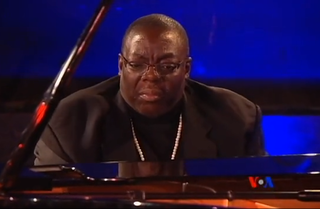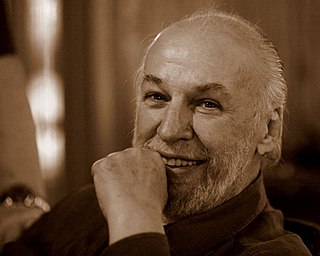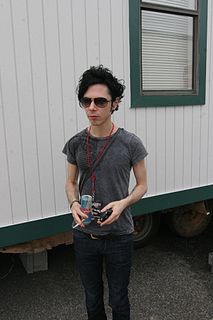A Quote by Anne Lamott
At some point I started getting published, and experienced a meager knock-kneed standing in the literary world, and I started to get almost everything that many of you graduates are hoping for--except for the money. I got a lot of things that society had promised would make me whole and fulfilled--all the things that the culture tells you, from preschool on, will quiet the throbbing anxiety inside you. I got some stature, the respect of other writers, even a low-grade fame. The culture says these things will save you, as long as you also manage to keep your weight down. But the culture lies.
Quote Topics
Almost
Almost Everything
Also
Anxiety
Culture
Down
Even
Everything
Except
Experienced
Fame
Fulfilled
Get
Getting
Got
Grade
Graduates
Had
Hoping
Inside
Keep
Knock
Lies
Literary
Long
Lot
Low
Make
Manage
Many
Me
Money
Other
Point
Preschool
Promised
Published
Quiet
Respect
Save
Says
Society
Some
Standing
Started
Stature
Tells
Things
Weight
Whole
Will
World
Would
Writers
Your
Related Quotes
There's this belief that some things can be taken seriously in an intellectual way, while some things are only entertainment or only a commodity. Or there's some kind of critical consensus that some things are "good," and some things are garbage, throwaway culture. And I think the difference between them, in a lot of ways, is actually much less than people think. Especially when you get down to how they affect the audience.
We got the goals early in the game and I thought we just got a little too comfortable with things. They started changing their defense, they started going from a zone defense to a man-to-man and doing different things. We got sloppy, and I give them credit for the way they played. We got sloppy and had some turnovers there. We did have some opportunities, one-on-one with the goalie in the second there, but we need to finish things. They found some momentum in their defense and were able to crawl back in.
The real controversy comes with anthropologists - not all, but some - who see themselves as studying culture, and they then see culture from the perspective of humans, which is what they study. From their perspective, or, from some of their perspectives, it's sort of heresy to even talk about culture in any other animal. Others would say, "Yeah, you can talk about it, but our definitions of culture are so utterly different from yours and include things like values, and so on, which you've never shown to exist in any of these other creatures."
The culture is still there, and people are still doing it. I imagine some people are doing it very well indeed. As for me, it definitely was my native literary culture. Science fiction was where I'm from, but on the way to now, I went through a lot of other territory, and I wasn't really that culturally conventional an SF writer when I started.
Everything is deeply affected by the dominant culture. Consumerism is huge in the US. This is by far the wealthiest [nation], but also the biggest consumer in the world. Which means that a lot of things get used, a lot of things get wasted, and a lot of things get churned out in ways that are wasteful.
The changes that we can make in the culture can be there for people that we will never meet, that will never know us, and that's what keeps me up at night. It's what excites me about science, that we can learn ways of being with each other. And the behavioral sciences have not been enough of a part of cultural development. The physical sciences have; the behavioral sciences have not. And I would like to see if we can bring some things into human culture that would humanize and soften and empower people.
My mom tells this story that even when I was in the womb, my father played the piano and she sang. So, before I officially got here, I was already surrounded by music. I also like the way my father explains it. When I was about 3-years old, in order to keep me quiet, my father would put me in the bassinet and either put on some music or play the piano. When he started playing, I got quiet and eventually went to sleep. He said by the time I turned 3, I just climbed up on the piano and started playing it with the attitude of I'm gonna play dis here piano.
I had promised myself when I first got started that if I got to the point my life where I started feeling 'Gee, I'd rather be at home than at work', and that started happening more often than not, that it would be time to leave. I'd wake up some days and go "Oh, I don't even know if I want to go face this anymore". I would, I would go do it, I'm a dutiful kind of person and not afraid of work.
I started my professional career before the blogosphere existed in any sort of meaningful way. I think that my approach as a writer was certainly freer because I wasn't worried, I didn't have commenters on me right from the get-go. I didn't have this instant-reaction culture that young writers have to deal with now. I had different things - I was listed in the phone book and people would look me up and call me and yell at me, but that was about as bad as it got.
Within your culture as a whole, there is in fact no significant thrust toward global population control. The point to see is that there never will be such a thrust so long as you're enacting a story that says the gods made the world for man. For as long as you enact that story, Mother Culture will demand increased food production today- and promise population control tomorrow.
I realized that we're now at a point of self-reference with the Internet culture that there's almost no there left, you know? It's important to make new things. It's important to make culture, rather than simply reference it. I love a good cultural reference, and it's one of the great joys in my life, but it has to all be in balance with the core job, which is to make something new. And that sort of brings me around to why I started talking about my fondness for marijuana.






































